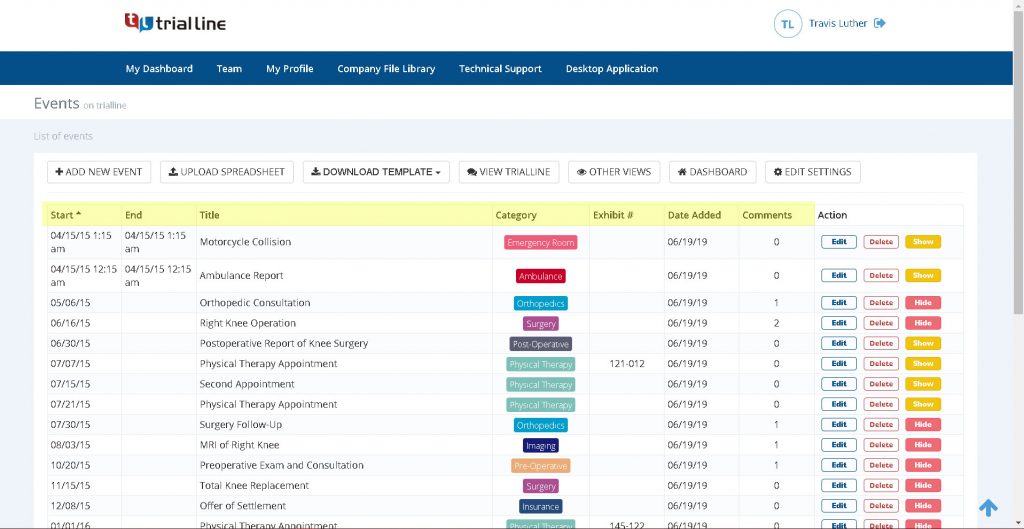 Divorce proceedings can be emotionally charged, complex, and often contentious. In certain situations, one or both parties may fail to adhere to court orders or the terms of the divorce agreement, leading to contempt cases. This article will explain what contempt cases are, why they matter, and how the timeline software TrialLine.net can help attorneys effectively argue their contempt cases in front of judges.
Divorce proceedings can be emotionally charged, complex, and often contentious. In certain situations, one or both parties may fail to adhere to court orders or the terms of the divorce agreement, leading to contempt cases. This article will explain what contempt cases are, why they matter, and how the timeline software TrialLine.net can help attorneys effectively argue their contempt cases in front of judges.
What is a Contempt Case in Divorce Proceedings?
A contempt case in divorce proceedings arises when one party (the respondent) fails to comply with court orders or the terms of the divorce agreement. These orders can pertain to various aspects of the divorce, such as child custody, spousal support, or property division. When a party disobeys these orders, they may be held in contempt of court, which can result in fines, penalties, or even imprisonment. Contempt cases can be categorized into two types: civil contempt and criminal contempt.
Why Do Contempt Cases Matter?
Contempt cases are crucial in divorce proceedings for several reasons:
- Ensuring compliance: Contempt cases are a mechanism for enforcing court orders and ensuring that both parties adhere to the terms of their divorce agreement. This helps maintain the rule of law and respect for the judicial process.
- Protecting rights: Contempt cases protect the rights of the aggrieved party, ensuring they receive the support, custody, or property distribution they are entitled to. By holding the non-compliant party accountable, the court safeguards the interests of both parties in the divorce.
- Deterrence: The threat of contempt cases serves as a deterrent to non-compliance, encouraging parties to follow court orders and the divorce agreement. This promotes a smoother, more efficient resolution of divorce-related disputes.
How TrialLine.net Timeline Software Can Help Attorneys in Contempt Cases
TrialLine.net is a user-friendly, web-based timeline software designed to help attorneys better manage and present their cases. It can be particularly beneficial in arguing contempt cases in divorce proceedings, offering several advantages:
- Organization: TrialLine.net allows attorneys to create a clear, chronological timeline of events, highlighting the instances of non-compliance. This visual aid can help attorneys stay organized and easily identify patterns of non-compliance, strengthening their case before the judge.
- Presentation: The software’s intuitive interface enables attorneys to present their contempt case effectively, showcasing relevant documents, images, and videos in a visually appealing manner. This can help the judge better understand the case and the respondent’s pattern of non-compliance.
- Collaboration: TrialLine.net facilitates collaboration between attorneys, paralegals, and support staff, streamlining the process of gathering evidence and preparing for court. This can lead to a more coherent and persuasive argument in front of the judge.
- Accessibility: As a cloud-based platform, TrialLine.net allows attorneys to access their case information from any device with an internet connection, ensuring that they are well-prepared, even when working remotely or on the go.
Conclusion
Contempt cases in divorce proceedings play a significant role in enforcing court orders, protecting the rights of the parties involved, and promoting a smoother resolution of disputes. Utilizing innovative tools like TrialLine.net can help attorneys better manage and present their contempt cases, enabling them to make a stronger, more persuasive argument before the judge. By leveraging this technology, attorneys can not only ensure a more organized and efficient approach to contempt cases but also improve their chances of achieving a favorable outcome for their clients.





